Key takeaways:
- Fitness cryptocurrency incentivizes physical activity by rewarding users with digital coins for achieving fitness goals, promoting a healthier lifestyle.
- Privacy in health records is essential for maintaining trust, with patients needing control over their data and innovative technologies like blockchain enhancing security.
- Implementing strong passwords, encryption, and regular audits of access logs are crucial steps for securing health records and protecting sensitive information.
- Utilizing multi-factor authentication and secure cloud storage, along with regularly updating privacy settings, empowers individuals to safeguard their health data effectively.
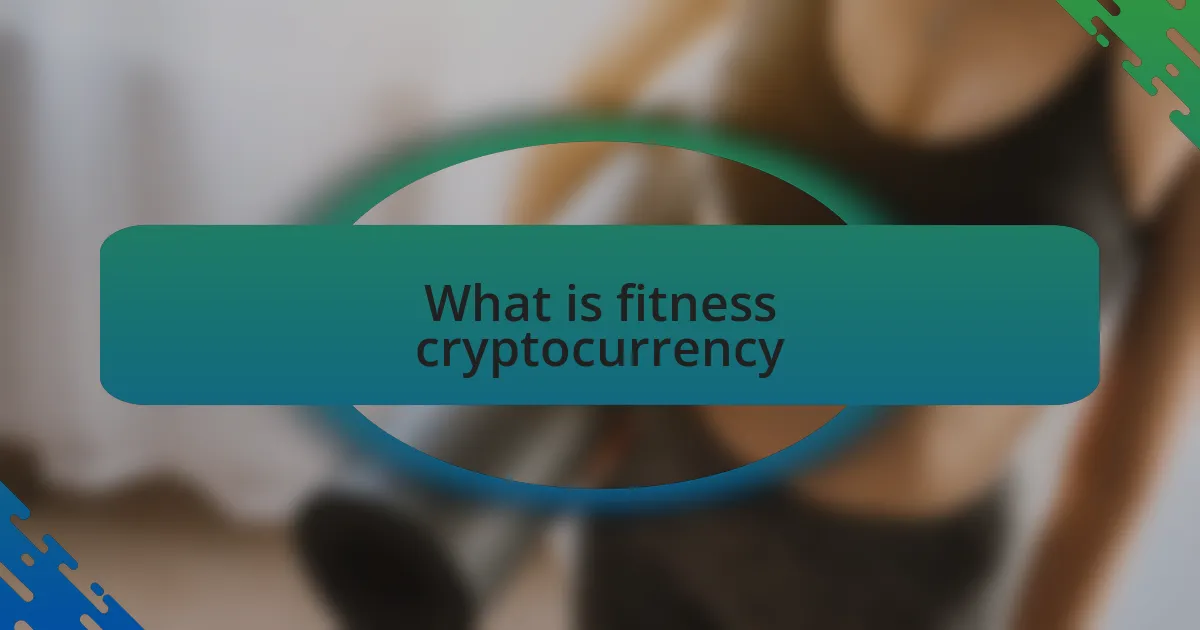
What is fitness cryptocurrency
Fitness cryptocurrency combines the realms of fitness tracking and blockchain technology. Essentially, it rewards individuals with digital coins for staying active and reaching fitness goals, encouraging a healthier lifestyle. Have you ever thought about how motivating it could be to earn cryptocurrency just for walking or exercising?
Imagine receiving coins every time you hit your step goals or complete a workout. For me, it felt surreal when I first earned my initial tokens—seeing my effort transformed into a tangible reward changed how I viewed my fitness journey. It’s exciting to think about how this innovative approach aligns our health incentives with financial gain.
Moreover, the community aspect of fitness cryptocurrency creates a sense of camaraderie. Engaging with others in the same endeavor fosters accountability and enhances motivation. When I share my progress and see others doing the same, it truly feels like we’re all in this together, pushing each other towards success, both in fitness and financial rewards.
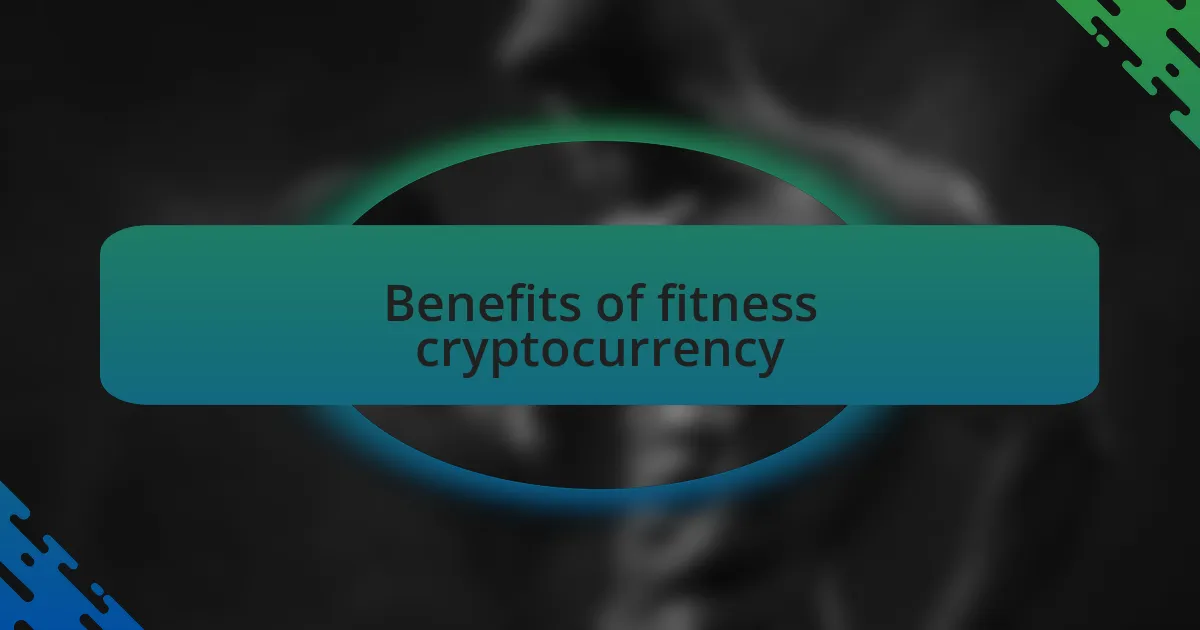
Benefits of fitness cryptocurrency
Fitness cryptocurrency really transforms the way we engage with our health. When I realized that each completed workout could not only enhance my physical well-being but also reward me with digital assets, it shifted my perspective completely. How often do we find motivation to exercise in something more than just a calorie count? This system adds an exciting twist—it’s like getting paid for investing in oneself.
Another profound benefit is that it promotes consistency. In my experience, turning fitness into a rewarding venture has led me to make healthier choices daily. For instance, I found myself opting for a brisk walk instead of lounging, just to rack up those tokens. Doesn’t it feel great to know that each step forward not only counts for your health but also contributes to your future financial security?
Additionally, the link between fitness and cryptocurrency cultivates a culture of ongoing education. The more I learned about blockchain, the more I understood the value of my rewards. Engaging conversations about fitness goals and crypto trends with others in the community have sparked not only personal advancements but also cultivated financial literacy. Who knew investing in my fitness could also mean investing in my financial acumen?
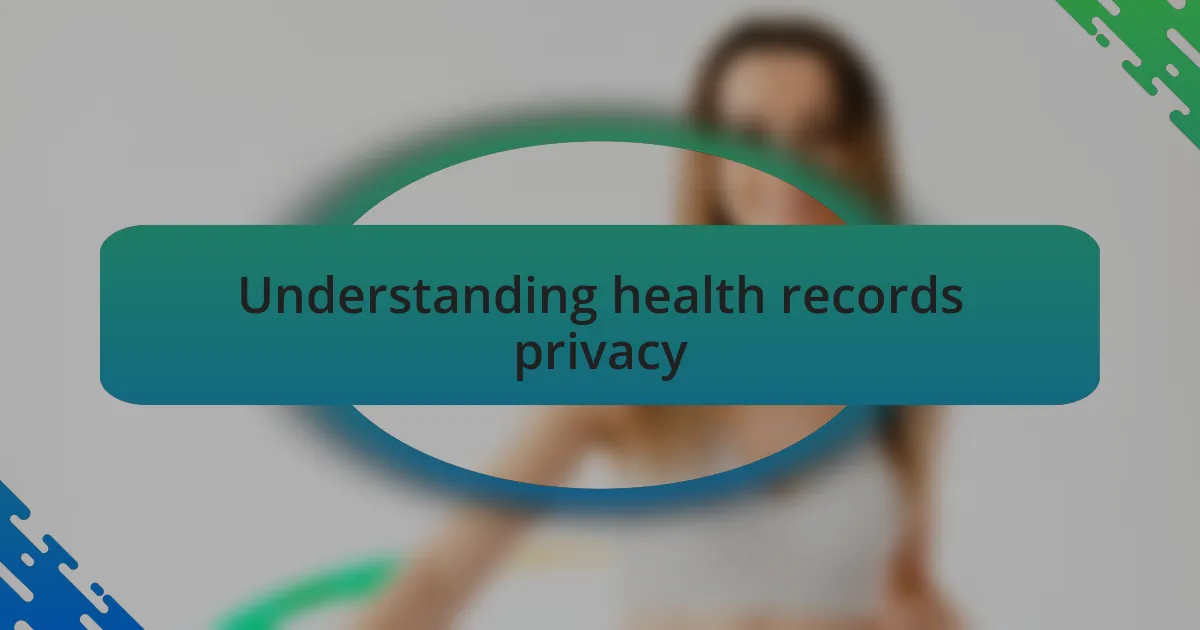
Understanding health records privacy
When I first started examining health records privacy, I realized how crucial it is for maintaining trust between patients and healthcare providers. Picture this: your medical history—the good, the bad, and everything in between—safeguarded from prying eyes. It’s a comforting thought, right? Knowing that sensitive information is protected allows us to share openly with our healthcare professionals without fear of unwanted exposure.
One aspect that really resonated with me was the importance of data ownership. I often ask myself, who should truly have access to my health information? During my research, I discovered that patients should always feel in control of their medical records. It’s a powerful realization to understand that my health data, collected over years, belongs to me and should only be shared when I choose to.
Moreover, there’s a growing recognition of the technologies that can enhance health records privacy. The thought of utilizing blockchain in healthcare piqued my interest. This technology can secure data by creating a tamper-proof record of every transaction. Imagine being able to grant access to your medical history only when necessary, and revoking it whenever you want—how liberating would that be? It’s these sorts of innovations that deepen my appreciation for health records privacy, as they enable a more empowered relationship with our health.
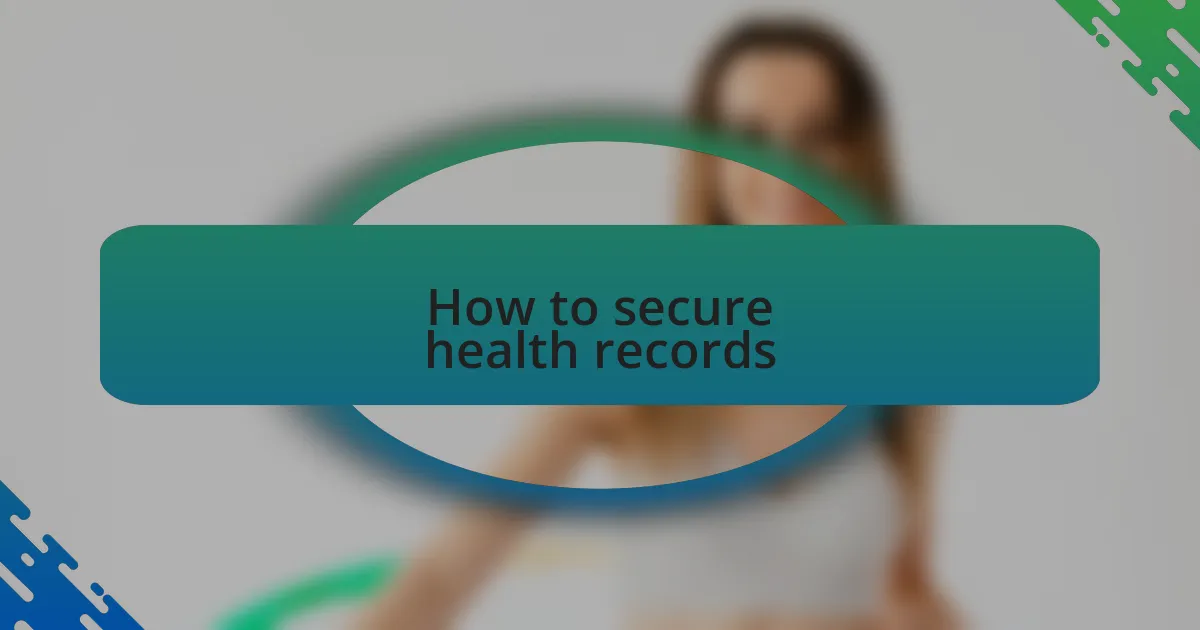
How to secure health records
When aiming to secure health records, I’ve found that building strong passwords is a fundamental step. I often make it a practice to use a combination of upper and lower case letters, numbers, and symbols. This simple habit can significantly reduce the risk of unauthorized access. Have you ever thought about how a unique password for each account could save you from potential headaches down the line?
Encrypting records is another layer I’ve come to prioritize. I learned that encryption transforms plain data into a secure format, making it unreadable without the right key. Just imagine feeling an extra layer of peace knowing your records are scrambled—only those with access can decipher the information. This process might seem complex, but trust me, it’s worth the effort when it comes to maintaining confidentiality.
Lastly, frequent audits of who accesses your health records can make a world of difference. I remember being surprised by realizing how many entities could potentially view my information. By keeping track of access logs, I empower myself and ensure that only authorized individuals can see my records. It’s a proactive step that instills confidence, knowing I have a pulse on who’s handling my sensitive health data. Have you taken the time to think about how often your records are being accessed?
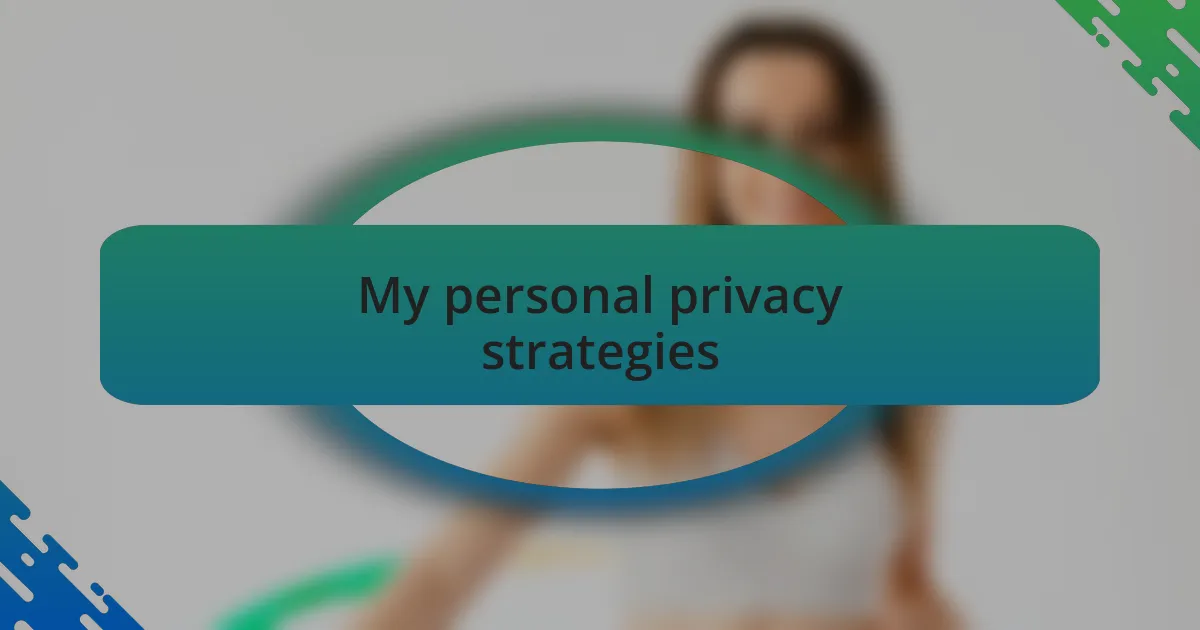
My personal privacy strategies
When it comes to my personal privacy strategies, I always ensure that I’m taking advantage of multi-factor authentication (MFA). After setting it up on my health-related accounts, I felt an immense sense of relief. Have you ever experienced the nagging worry of a security breach? Knowing that an additional layer protects my information significantly eases my mind.
I also consistently utilize secure cloud storage solutions. I remember when I first transitioned my health records online; I was skeptical about the safety of the cloud. But once I researched reputable providers and implemented additional encryption myself, I realized that it offered convenience without sacrificing security. Where do you store your sensitive data?
Another practice I swear by is regularly updating my privacy settings on all platforms. Recently, I discovered a feature on a health app that allowed me to limit data sharing. It felt empowering to take control of what I shared, and it made me think—are you aware of the settings available to safeguard your information?